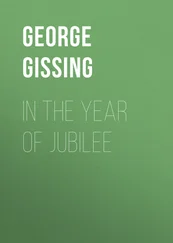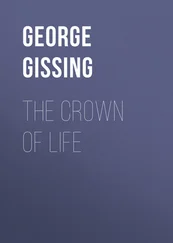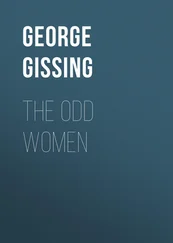George Gissing - The Whirlpool
Здесь есть возможность читать онлайн «George Gissing - The Whirlpool» — ознакомительный отрывок электронной книги совершенно бесплатно, а после прочтения отрывка купить полную версию. В некоторых случаях можно слушать аудио, скачать через торрент в формате fb2 и присутствует краткое содержание. Жанр: foreign_prose, literature_19, foreign_antique, на английском языке. Описание произведения, (предисловие) а так же отзывы посетителей доступны на портале библиотеки ЛибКат.
- Название:The Whirlpool
- Автор:
- Жанр:
- Год:неизвестен
- ISBN:нет данных
- Рейтинг книги:4 / 5. Голосов: 1
-
Избранное:Добавить в избранное
- Отзывы:
-
Ваша оценка:
- 80
- 1
- 2
- 3
- 4
- 5
The Whirlpool: краткое содержание, описание и аннотация
Предлагаем к чтению аннотацию, описание, краткое содержание или предисловие (зависит от того, что написал сам автор книги «The Whirlpool»). Если вы не нашли необходимую информацию о книге — напишите в комментариях, мы постараемся отыскать её.
The Whirlpool — читать онлайн ознакомительный отрывок
Ниже представлен текст книги, разбитый по страницам. Система сохранения места последней прочитанной страницы, позволяет с удобством читать онлайн бесплатно книгу «The Whirlpool», без необходимости каждый раз заново искать на чём Вы остановились. Поставьте закладку, и сможете в любой момент перейти на страницу, на которой закончили чтение.
Интервал:
Закладка:
In the first days at Bregenz they felt a renewal of pleasure in each other's society; Alma's spirits were much improved; she enjoyed the scenery, and lived in the open air. There was climbing of mountains, the Pfander with its reward of noble outlook, and the easier Gebhardsberg, with its hanging woods; there was boating on the lake, and rambling along its shores, with rest and refreshment at some Gartenwithschaft. Miss Steinfeld, whose reading and intelligence were superior to Alma's, liked to explore the Roman ruins and linger in the museum. Alma could not long keep up a pretence of interest in the relics of Brigantium; but she said one day, with a smile–
'I know someone who would enjoy this kind of thing—an Englishman—very learned–'
'Old?' inquired her friend significantly.
'Yes—no. Neither old nor young. A strange man; rather interesting. I've a good mind,' she added mischievously, 'to send him a photograph.'
'Of yourself?'
'Oh dear, no! He wouldn't care for that. A view of the Alt-Stadt.'
And in her mood of frolic she acted upon the thought. She purchased two or three views, had them done up for post, and addressed them to Harvey Rolfe, Esq, at the Metropolitan Club; for his private address she could not remember, but the club remained in her mind from Sibyl's talk of it. When the packet was gone, of course she regretted having sent it. More likely than not, Mr. Rolfe considered himself to have ended all acquaintance with the disgraced family, and, if he recognised her handwriting, would just throw the photographs aside. Let him; it mattered nothing, one way or the other.
When a week had passed, the novelty of things wore off; the friends began to wander apart; Miss Steinfeld made acquaintances in the pension , and Alma drifted into solitude. At the end of a fortnight she was tired of everything, wished to go away, thought longingly of England. It was plain that Mr. Redgrave would not come; he had never seriously meant it; his Auf Wiedersehen was a mere civility to get rid of her in the street. Why had he troubled to inquire about her at all? Of course it didn't matter—nothing mattered—but if ever she met him again! Alma tried her features in expression of cold scornfulness.
On the next day, as she was returning from an idle walk with her friend along the Lindau road, Mr. Redgrave met them. He was dressed as she had never seen him, in flannels, with a white necktie loosely knotted and a straw hat. Not till he had come near enough to salute did she recognise him; he looked ten years younger.
They talked as if the meeting were of daily occurrence. Redgrave addressed himself to Miss Steinfeld as often as to Alma, and showed a graceful command of decorous commonplace. He had arrived early this morning, had put up at the Oesterreichischer Hof, was already delighted with Brogenz. Did Miss Steinfeld devote herself to landscape? Had she done anything here? Had Miss Frothingham brought her violin? They strolled pleasantly to the Hafen promenade, and parted at length with assurances of meeting again, as if definite appointment were needless.
'That is my idea of the English gentleman,' said Miss Steinfeld afterwards. 'I think I should have taken him for a lord. No doubt he is very rich?'
'Oh, pretty well off,' Alma replied, with assumed indifference. 'Ten thousand pounds a year, I dare say.'
'Ten thousand! Lieber Himmel ! And married?'
'No.'
'In Parliament, I suppose?'
'No.'
'Then, what does he do?'
'Oh, amuses himself.'
Each became occupied with her thoughts. Alma's were so agreeable, that Miss Steinfeld, observing her, naturally fell into romantic speculation.
Redgrave easily contrived that his next walk should be with Miss Frothingham alone. He overtook her next morning, soon after she had left the house, and they rambled in the Gebhardsberg direction.
'Now let us have the promised talk,' he began at a favourable moment. 'I've been thinking about you all the time.'
'Did you go to your place on Lake Garda?'
'Yes; just to look at it, and get it put in order. I hope to be there again before long. You didn't doubt I should come?'
'You left it uncertain.'
'To be sure. Life is uncertain. But I should have been desperately disappointed if I hadn't found you here. There are so many things to be said about going in for music as a profession. You have the talent, you have the physical strength, I think.' His eye flattered her from head to foot. 'But, to be a great artist, one must have more than technical qualifications. It's the soul that must be developed.'
Alma laughed.
'I know it. And what is your receipt for developing the soul?'
Redgrave paused in his walk. Smiling, he gave a twist to his moustache, and appeared to meditate profoundly.
'The soul—well, it has a priggish sound. Let us say the character; and that is developed through experience of life.'
'I'm getting it.'
'Are you? In the company of Miss Steinfeld? I'm afraid that won't carry you very far. Experience means emotion; certainly, for a woman. Believe me, you haven't begun to live yet. You may practise on your violin day and night, and it won't profit you—until you have lived .'
Alma was growing serious. These phrases harmonised well enough with her own insubstantial thoughts and idly-gathered notions. When preparing to escape from England, she had used much the same language. But, after all, what did it mean? What, in particular, did Cyrus Redgrave mean, with his expressive eyes, and languid, earnest tone?
'You will say that a girl has few opportunities. True, thanks to her enslavement by society.'
'I care nothing for society,' Alma interposed.
'Good! I like the sound of that defiance; it has the right ring. A man hasn't often the pleasure of hearing that from a woman he can respect. It's easy, of course, to defy the laws of a world one doesn't belong to; but you, who are a queen in your circle, and may throne, at any moment, in a wider sphere—it means much when you refuse to bow down before the vulgar idols, to be fettered by superstitions.'
His aim was dark to her, but she tasted the compliment which ignored her social eclipse. Redgrave's conversation generally kept on the prosaic levels—studiously polite, or suavely cynical. It was a new experience to see him borne on a wave of rhetoric; yet not borne away, for he spoke with an ease, a self-command, which to older ears would have suggested skill rather than feeling. He had nothing of the ardour of youth; his poise and deliberation were quite in keeping with the two score years that subtly graved his visage; the passions in him were sportive, half-fantastical, as though, together with his brain, they had grown to a ripe worldliness. He inspired no distrust; his good nature seemed all-pervading; he had the air of one who lavishes disinterested counsel, and ever so little exalts himself with his facile exuberance of speech.
'I have seen much of artists; known them intimately, and studied their lives. One and all, they date their success from some passionate experience. From a cold and conventional existence can come nothing but cold and conventional art. You left England, broke away from the common routine, from the artificial and the respectable. That was an indispensable first step, and I have told you how I applauded it. But you cannot stop at this. I begin to fear for you. There is a convention of unconventionality: poor quarters, hard life, stinted pleasures—all that kind of thing. I fear its effect upon you.'
'What choice have I?' exclaimed Alma, moved to familiar frankness. 'If I am poor, I must live poorly.'
He smiled graciously upon her, and raised his hand almost as though he would touch her with reassuring kindness; but it was only to stroke his trimmed beard.
Читать дальшеИнтервал:
Закладка:
Похожие книги на «The Whirlpool»
Представляем Вашему вниманию похожие книги на «The Whirlpool» списком для выбора. Мы отобрали схожую по названию и смыслу литературу в надежде предоставить читателям больше вариантов отыскать новые, интересные, ещё непрочитанные произведения.
Обсуждение, отзывы о книге «The Whirlpool» и просто собственные мнения читателей. Оставьте ваши комментарии, напишите, что Вы думаете о произведении, его смысле или главных героях. Укажите что конкретно понравилось, а что нет, и почему Вы так считаете.












